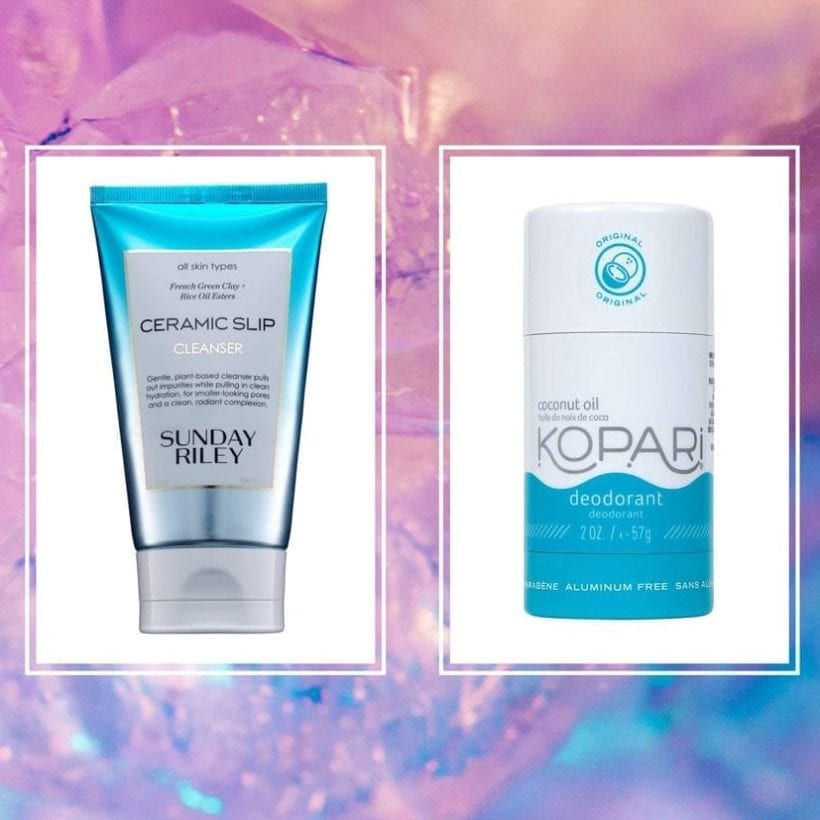We are all chasing the glow. That inexplicable but unmistakable look of healthy radiance makes Jennifer Lopez appear as if she is always standing in a gentle beam of golden sunlight. It is more than good genes, religious exfoliation, hydration and sunscreen. If only there were a silver bullet. Perhaps there is. Could it be glutathione?
According to a report in Global Market Insights, the glutathione market is poised to rise from over $34 million in 2018 to $315 million by 2027. And in a world abuzz with the next big things, glutathione is about to make a leap from the world of medicine to wellness and beauty in a big way.
Glutathione — one of the body’s most important and potent antioxidants — occurs naturally in our bodies and keeps cells healthy by removing free radicals, toxins, and heavy metals. It also improves energy production, is a powerful immunity booster, and delays early signs of aging in the skin. Crushing free radicals in a single instant, glutathione has superpowers. For years, it has been used in the medical world to treat acute illnesses. Studies have found that glutathione has a positive impact on the treatment of diseases ranging from cancer and autism to Parkinson’s and liver failure.
Crushing free radicals in a single instant, glutathione has superpowers.
Glutathione is made up of three different amino acids: glutamine, glycine, and cysteine and is present in every cell in the body. And it does some heavy lifting: it prevents and delays cell damage and death, keeps our mitochondria strong so they pump out energy and protect our DNA. While we get the most antioxidants from the foods that we eat, glutathione is produced naturally all the time in our liver and has the ability to bind itself to drugs and toxins to actually assist the liver in eliminating them. Since it is good for liver detoxification, it can help improve the overall appearance of the skin.
People who live well into their 80s have been found to have high levels of glutathione, which is likely why some even say that cellular glutathione levels can predict an individual’s life expectancy. In short, it staves off the signs of aging inside and out. The problem is that we stop making optimal levels of glutathione after the age of 20. “Glutathione is part of your body’s natural defense mechanisms,” says Joshua Zeichner, M.D., director of cosmetic and clinical research at the Department of Dermatology of The Mount Sinai Hospital in New York City. “With age, antioxidant levels are generally thought to decline, so the body cannot protect itself from environmental exposures as well as it can when you are young.” Research shows this powerful antioxidant not only increases energy levels, but also improves heart and brain function, and possibly even exhorts a longer life.
Gluthathione and Skin
Glutathione fights oxidative stress which is an imbalance between free radicals and antioxidants in the body. When free radicals accumulate, they cause cell and tissue damage leading to wrinkles, inflammation, hyperpigmentation, and melasma. Glutathione can help decrease these age-related effects, by combating those nasty effects of free radicals and inflammation and has been shown to even out skin tone. “Glutathione has long been used in skincare for its skin lightening benefits. It works activity of the enzyme tyrosinase which is involved in the production of pigmentation,” says Zeichner. Because of its powerful antioxidant effects and ability to help lighten dark spots and brighten the skin overall, topical glutathione is a key ingredient in a number of beauty products.

“People deplete glutathione with exposure to chemicals, pollution, alcohol, Tylenol and other factors,” says Al Czap, founder of the supplement company Tesseract Medical Research and longtime publisher of the Alternative Medicine Review, a peer-reviewed medical journal. He says that while the anti-aging and skin-lightening effects of glutathione are still being explored, without it your skin will look not great as time passes.
How can I take glutathione?
- Add foods that stimulate glutathione production in the body to your plate. Garlic and onion, as well as cruciferous vegetables like broccoli, brussels sprouts, cauliflower and kale all help naturally boost glutathione levels. Trevor Cates, a naturopathic doctor based in Park City, Utah, and the author of Clean Skin From Within, recommends taking supplements like vitamin C, N-acetyl cysteine, selenium and milk thistle to help boost your body’s natural glutathione production. “Exercise also helps naturally boost glutathione, but the key is to not overdo it,” she says. “Start slowly with 10-30 minutes daily of activities like walking, biking and swimming. You can gradually work up from there, but if you push yourself too hard you actually add more stress to your body and deplete your glutathione.”
- IV use remains the most effective way to administer glutathione, and as its popularity in the beauty world grows, dermatologists and wellness spas like Nutridrip and Reviv are increasingly offering booster shots and drips for detoxification and that “glutathione glow.” Shoko Karakilic, nurse practitioner for NutriDrip at Clean Market in New York City recommends getting glutathione drips for a number of reasons. “If you need to improve blemishes and dull skin or if you have poor diet and exercise, to get rid of pollution and toxins within the body and combat oxidative stress which can be caused by any physical or mental stressors,” she says. Or, if you are going to a special event, like a wedding.
https://www.instagram.com/p/BrFkQeFnu56/
- Glutathione supplements have been available on drugstore shelves for years, but they were not especially popular due to their lack of bioavailability (meaning that naturally occurring acids in the stomach would break it down before it could be absorbed in the intestines and have a positive action on health). Which is why doctors have so far mainly been using it intravenously to treat disease. But if the idea of getting an IV drip sounds intimidating, the good news is that brands are finally figuring out more efficacious forms and better methods for delivering the benefits of glutathione as an oral supplement. “I used to not recommend oral glutathione because it would not increase body levels of glutathione,” says Cates. “But now there are liposomal forms that are more bioavailable.” Cates suggests looking for liposomal delivery systems that encase the glutathione in protective molecules like lipids to help it survive the stomach and eventually enter the bloodstream as well as supplements containing acetyl glutathione which is the most potent form available in a pill. The recommended dose is 500-1,000 milligrams a day.
We only recommend products we have independently researched, tested, and loved. If you purchase a product found through our links, Sunday Edit may earn an affiliate commission.







